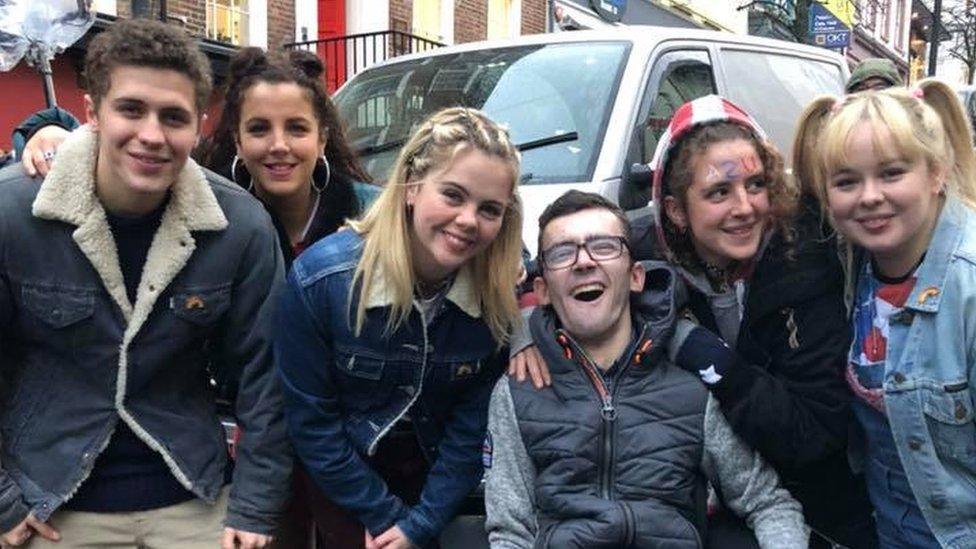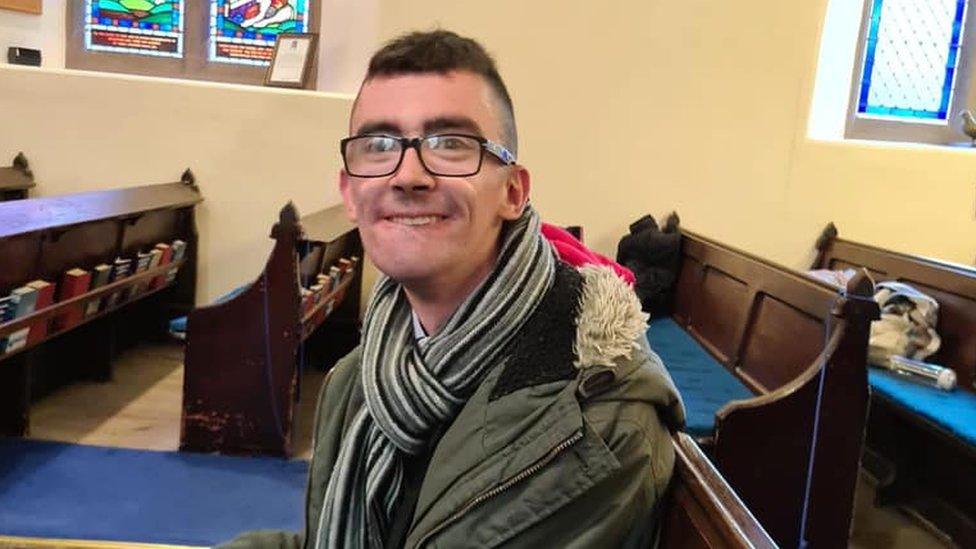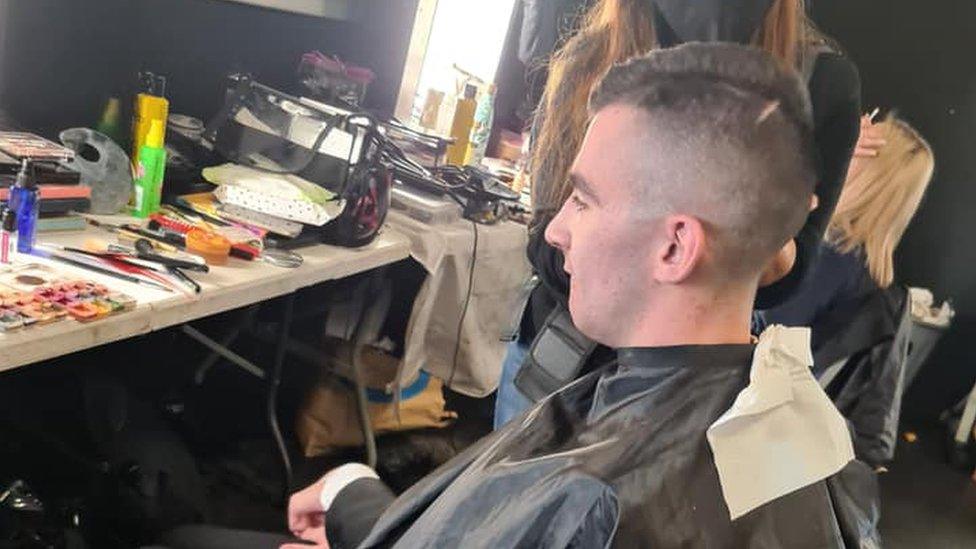Derry Girls: Drama graduate's dreams come true
- Published

Eamonn met the cast of Derry Girls when they filmed in the city in 2018
A drama graduate from Londonderry who has cerebral palsy says his dreams came true when he became an extra on series three of the comedy show Derry Girls.
Eamonn Doherty and his friend Sean McGlinchey - a former professional boxer from Derry - campaigned on social media for months.
The writer of the Channel 4 series, Lisa McGee, heard Eamonn was a fan and said yes to his request.
Eamonn was born with cerebral palsy which affects his movement and speech.
He graduated in July this year and wants to follow his dreams to be a writer and actor.
"I want to inspire people to chase their dreams to write and act," said the 22-year-old.

Eamonn Doherty took part in a church scene as an extra in Derry Girls
Eamonn and his friend Sean arrived on set in Derry recently and then had to roll back the years as their 21st century style didn't quite fit the bill for the 1990s show.
"We had to bring our own black and white clothes and they even had to change our hairstyles because they were too modern," Sean McGlinchey said.
"For Eamonn to have a degree and have cerebral palsy is a massive deal for him and his family," Sean added.
"He's a massive Derry Girls fan so we decided to push hard to get on it. Eamonn messaged the cast directly and I tried whatever influence I have on Twitter to contact Lisa McGee too."
Allow X content?
This article contains content provided by X. We ask for your permission before anything is loaded, as they may be using cookies and other technologies. You may want to read X’s cookie policy, external and privacy policy, external before accepting. To view this content choose ‘accept and continue’.

Filming was postponed because of the Covid-19 pandemic, but resumed in recent months.
"It might be a small thing to be an extra in the cast but this was a massive opportunity for Eamonn," Sean said.
"We can't say anything about the scene really, but Eamonn was in a pretty prominent position so hopefully he will be seen."

The makeup department had to change Eamonn's hairstyle "because it was too modern" for the scene
The symptoms of cerebral palsy, external are not usually obvious just after a baby is born. They normally become noticeable during the first two or three years of a child's life.
The severity of symptoms can vary significantly. Some people only have minor problems, while others may be severely disabled.
"I think it's great to show that some things are possible even if you have a disability," Eamonn said.
"I had a massive smile on my face."
- Published23 September 2021

- Published7 August 2019
